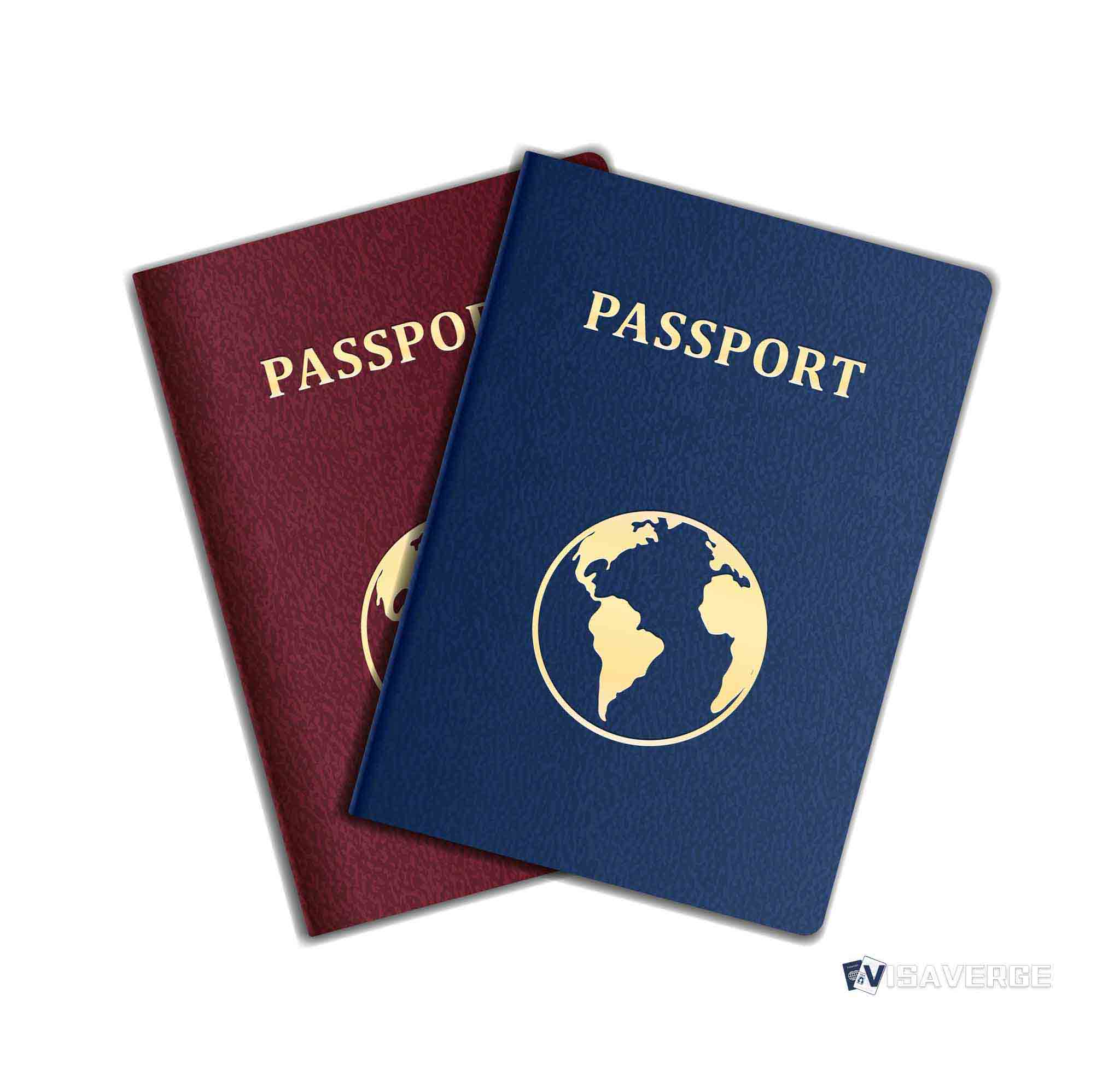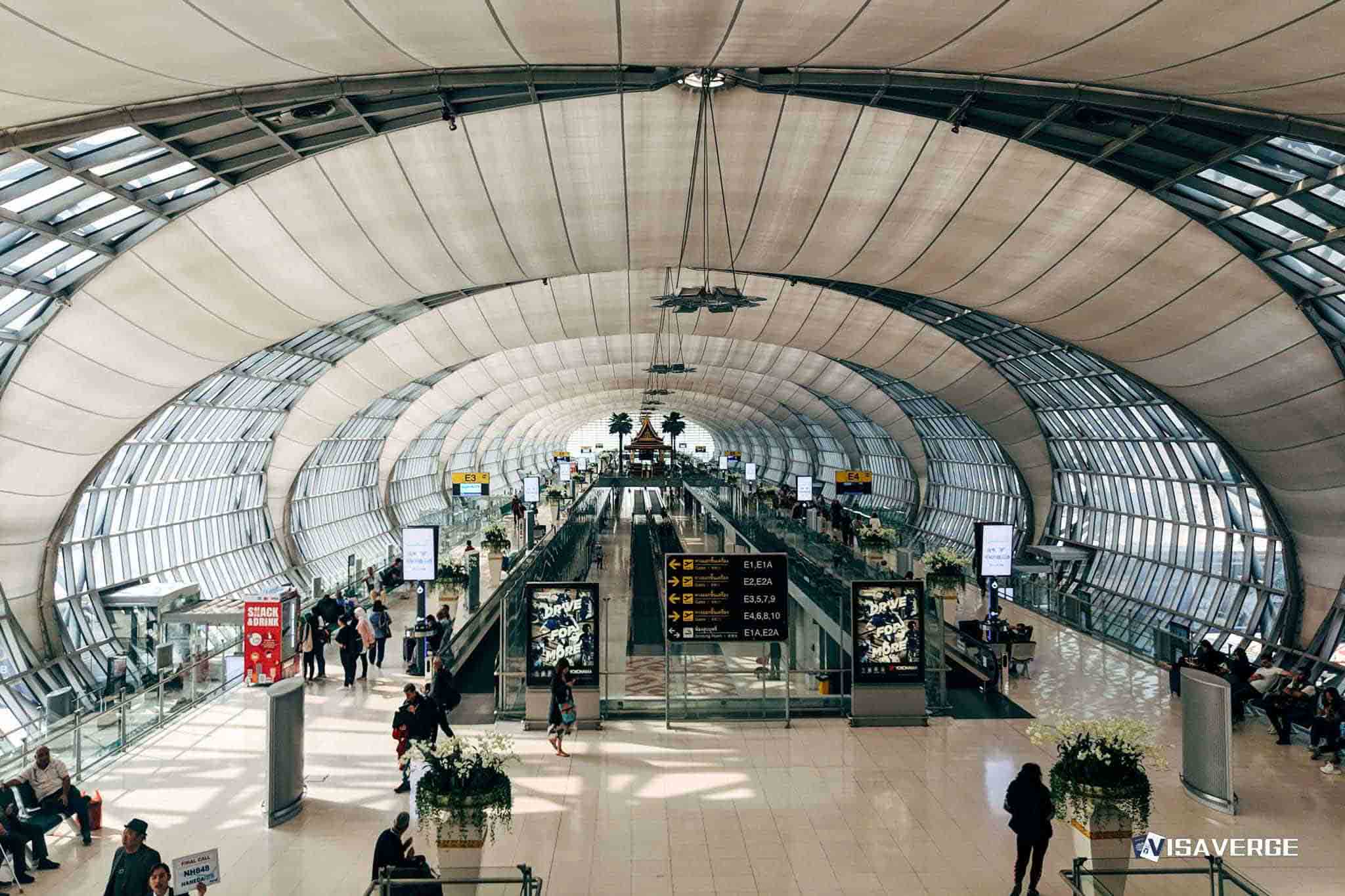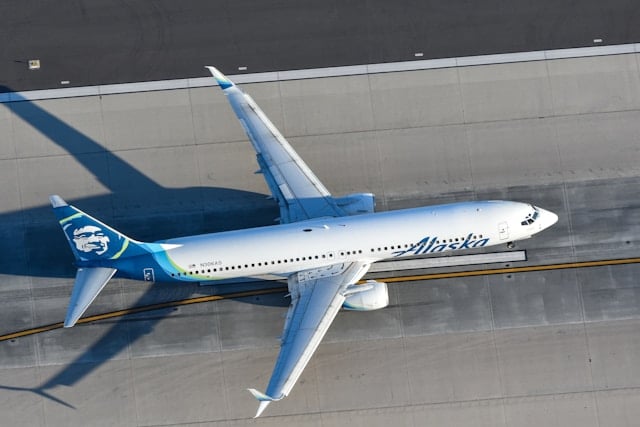Key Takeaways
• NAIA banned security personnel from touching passports starting April 30, 2025.
• Travelers must hold their own passports for visual inspection at security checks.
• Policy change follows incidents of damaged passports causing denied boarding.
On April 30, 2025, a big change took place at Ninoy Aquino International Airport, more commonly known as NAIA, in the Philippines 🇵🇭. The airport’s new rule says that NAIA security personnel are no longer allowed to touch passengers’ passports when people enter the terminal or go through security checks. This way, only the owner holds their travel document at all times. This move aims to protect people’s passports, keep them from getting damaged, and stop any unnecessary physical contact during document checks.
What’s Changed at NAIA?

The new policy at NAIA 🇵🇭 means that, going forward, every passenger must hold up their own passport or valid ID when asked. Security personnel will check your document by looking at it—they can ask you to turn it slightly if they need a better view—but they cannot touch it or take it from your hands.
This change affects anyone passing through NAIA 🇵🇭, including Filipino citizens, people from other countries, workers, tourists, and students. Whether you’re traveling for work, going on holiday, or visiting family abroad, the new policy will apply to you.
Why Did NAIA Make This Change?
The biggest reason for this new hands-off approach is to keep passports safe. Recently, there were some problems with damaged passports at NAIA 🇵🇭. One of the most discussed cases happened on April 15. A traveler was supposed to go on a vacation to Bali, Indonesia 🇮🇩, but Cebu Pacific airline staff at NAIA Terminal 3 did not allow him to board his flight. The staff found a small tear on his passport. Even though the damage was minor, it was enough for the airline to say the passport was not in good condition.
This case caused a lot of worry among travelers and led people to ask: could passports be getting damaged during airport security checks, especially if many different people need to hold or pass the document around? While NAIA 🇵🇭 officials said there had not been any official report about their security personnel causing damage, there was still talk and concern about such risks.
Because passports can be hard to replace and are needed for travel, it makes sense that people want to protect them from being handled by others. That’s why NAIA 🇵🇭 took action.
Official Statement on the Passport Handling Ban
The company responsible for NAIA’s management, New NAIA Infra Corp, made the new policy public with a clear message: “To better protect your travel documents and reduce unnecessary contact, all NAIA security personnel have been instructed not to touch passports during terminal entry and security verification.” This means from now on, your passport stays in your own hands until you reach your airline check-in counter or borders.
Background: Problems with Damaged Passports
Let’s look closer at why this change matters. The incident with the passenger flying to Bali is not the only case. Other reports tell of people being refused boarding by airlines because their passports had minor tears, folds, or other damage. Travelers worry that if a passport is even slightly damaged, it could cause them to be delayed or miss their trip entirely.
A passport is a very important document. If it is torn, has loose pages, or even just a small rip, some airlines might say it is not valid. This can lead to travelers not being allowed to fly, sometimes after waiting and paying for expensive tickets. Fixing a damaged passport is usually hard and can take a lot of time, especially if you are in a hurry to travel. The trouble, cost, and stress caused by these incidents have made people more focused on keeping their passports safe from any harm, including handling by many different people at airports.
The Investigation: Who Is Responsible?
After these boarding problems came to light, the Department of Transportation in the Philippines 🇵🇭 and the Civil Aeronautics Board started an investigation. They want to find out why some travelers are being refused flights because of passport damage and see if any airport procedures need to change.
So far, NAIA 🇵🇭 stated that there is no proof showing their own security officers damaged any passports. Still, they decided to make things even safer by making the no-touch rule official. By clearly stating that NAIA security personnel cannot handle passenger passports, they hope to shut down any future chance of blame or confusion if a passport is later found damaged.
Better Teamwork to Stop Problems
Besides changing security procedures, NAIA 🇵🇭 is also working harder with other important groups. According to a statement after these events, the airport is talking more often with airline partners, the Department of Transportation, and the Bureau of Immigration. The goal is to make sure everyone is following the same process and to avoid even small mistakes that could hurt travelers.
VisaVerge.com’s investigation reveals that this new hands-off approach comes at a time when airports worldwide are trying to make sure documents are checked safely and travel is as smooth as possible. NAIA’s policy may become a model for other airports in the region facing similar concerns.
How the New Policy Works for Travelers
Here’s what you need to do if you fly through NAIA 🇵🇭 after the new rule started:
- When entering the terminal or security checks, keep your passport or travel document ready.
- Wait for a security officer to tell you when and how to show your document.
- Hold your passport yourself and display the photo page or main page clearly.
- Security personnel can look at the document, ask you to show it closer, or ask you to tilt it, but they must not touch or take it from you.
- After their check, put your passport back in your bag or pocket.
Because airport security personnel are no longer allowed to touch your passport, the only people who may handle it are those working for the airline during check-in, immigration officers at border control, or when airlines check tickets at the boarding gate.
Why This Matters for Travelers, Airlines, and Other Groups
For many passengers, not having others handle their passport gives them peace of mind. It lowers the chance of accidental rips, lost pages, or other problems that might get noticed by strict airline staff later.
For airlines, even minor damage has consequences. If an airline lets a passenger board with a damaged passport and gets stopped by border control at the next country, it can cause problems for everyone. Airlines may have to bring travelers back at their own cost, pay fines, or face trouble from officials. That’s why many airlines have become very strict about the passport’s condition before letting someone board.
For NAIA security personnel, this rule gives clear guidance. Now, all staff know where their responsibility stops and can provide better service to travelers, focusing on security without the risk of passport mishandling.
Possible Challenges and Criticisms
Some people might ask if the new rule could make it easier for fake documents to pass through since security personnel are not allowed to feel for missing or strange-looking pages. Others may wonder if this slows down the process since security staff might need extra time to get a good look at a document without holding it. But most agree that the rule is a step that helps protect passengers and keeps processes clear.
The Department of Transportation and other groups say they’re keeping a close eye on the situation. If problems come up, they will work with NAIA’s management to make needed changes quickly.
Looking at International Practices
Globally, many airports have started using similar “hands-off” approaches, especially since the COVID-19 pandemic. The push to reduce contact has led some places to use special machines or QR codes, so passengers can scan or show their own documents without giving them to others. For NAIA 🇵🇭, this new rule puts it in line with these trends and shows it’s listening to the concerns of modern travelers.
What to Do If You’re Refused Boarding Due to Passport Damage
If you arrive at the airport and are told by airline staff that your passport is not okay, first ask for a clear reason. Make sure you see exactly what they say is wrong. If you feel the damage is very minor, you can explain your case, but usually, airlines follow strict rules, so they may not be able to allow you to travel. If you are in the Philippines 🇵🇭, you can also visit the Department of Foreign Affairs for help with getting a new passport or fixing a damaged one.
It’s a good idea to check your passport before your trip. If you see any loose, torn, or missing pages—or even a small tear—consider getting a replacement before you plan flights, so your travel plans go smoothly.
Summary: The Importance of Protecting Passports at NAIA
To sum it up, the new no-touch policy at NAIA 🇵🇭 for security checks is a simple but important step. Passengers keep control of their travel documents at all times, lowering the risk of damage, loss, or confusion. For NAIA security personnel, the rule means their job is more focused and avoids putting them in situations where blame for damage could fall on them. Airlines get clearer, safer procedures, and travelers feel more secure knowing their passport stays in their own hands until needed for border checks or airline verifications.
Behind the new policy are stories from real people whose trips were affected by even small tears or damage to their passports. By responding to these concerns and adjusting their approach, NAIA 🇵🇭 and its partners show they are paying attention and putting travelers’ needs first.
For more details on travel-document policies and to stay updated on the latest news about passport and immigration rules in the Philippines 🇵🇭, you can visit the Department of Foreign Affairs’ passport page.
From now on, when you travel through NAIA 🇵🇭, remember: keep your passport safe, show it when asked, but never let go. This small change could mean a smoother experience for everyone, ensuring happy, worry-free travels.
Learn Today
NAIA → Ninoy Aquino International Airport, the main international gateway of the Philippines, located in Manila.
Security Check → A process where airport personnel verify passenger identity and documents before allowing entry or boarding.
Department of Transportation → Philippine government agency overseeing transportation policies, including airport operations and passenger protection.
Civil Aeronautics Board → Regulatory body in the Philippines governing civil aviation, airline practices, and passenger rights.
Hands-off Policy → A rule requiring airport staff not to physically handle travelers’ documents, ensuring only the owner holds them.
This Article in a Nutshell
Ninoy Aquino International Airport now prevents security staff from touching passenger passports. As of April 30, 2025, only passport owners can handle their travel documents during security checks. This step aims to reduce document damage and confusion, ensuring greater passenger safety—making air travel from NAIA more secure and reliable.
— By VisaVerge.com
Read more:
• India Immigration Bill: Fake Passports May Bring Jail and Heavy Fines
• Ukrainian Newcomers in Canada Face Hurdles with Passports, Visa Deadlines
• Dual Citizenship Rules for Kids of US-Born Parents with Mexican Passports
• Government Shutdown: Impact on Flights and Passports
• Visa Waiver Program for British Residents with Portuguese Passports












